Abstract
Although responses to 24-hour recall and knowledge—attitude—practice questionnaires are commonly used in water—sanitation studies as surrogates for direct observation of behaviour, the validity of this approach is questionable. We therefore compared questionnaire data with those obtained by direct observation of practices related to water storage, handwashing, and defecation among 247 families in urban Dhaka, Bangladesh. Analysis of the results indicates that accord between the replies to the questionnaires and the data collected by direct observation was poor and that the responses to the two questionnaires were often contradictory. Significant disagreements between the results of questionnaires and observations arose usually because desirable practices were over-reported by the respondents. The results of the study suggest that in urban Bangladesh 24-hour recall and knowledge—attitude—practice questionnaires should not be used as proxies for direct observation of hygiene practices.
Full text
PDF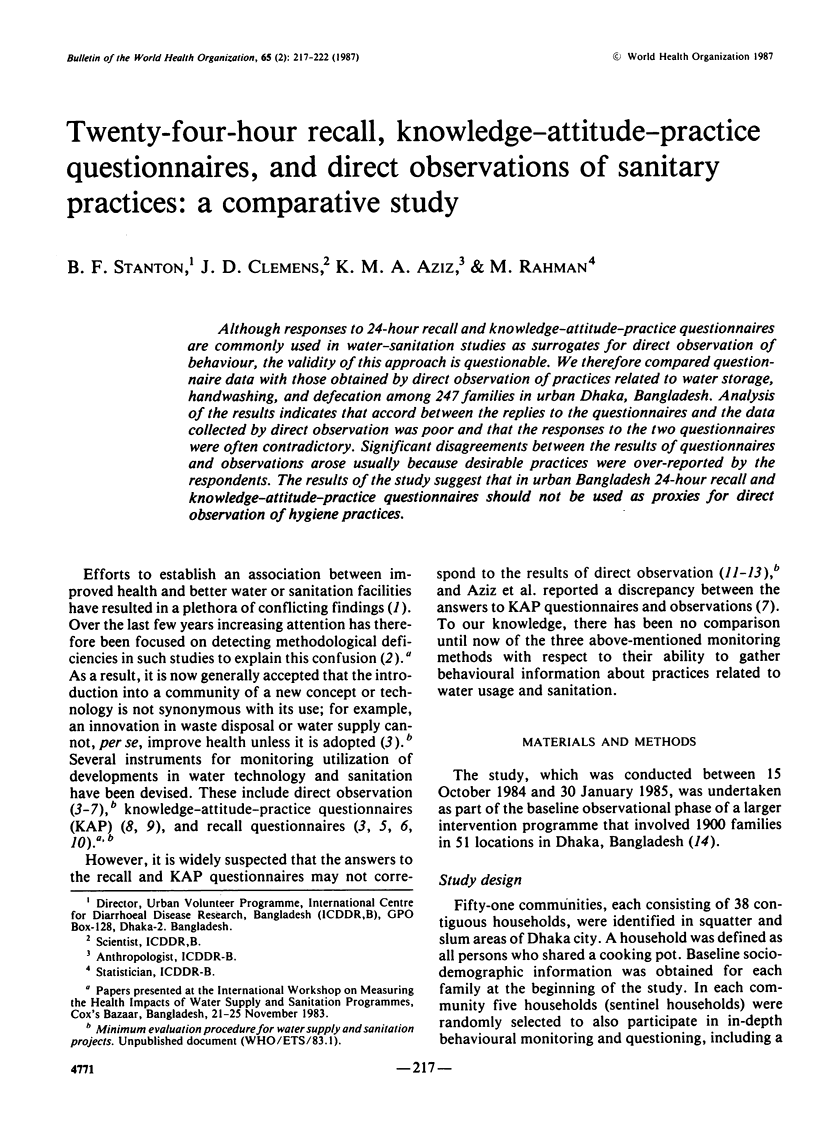
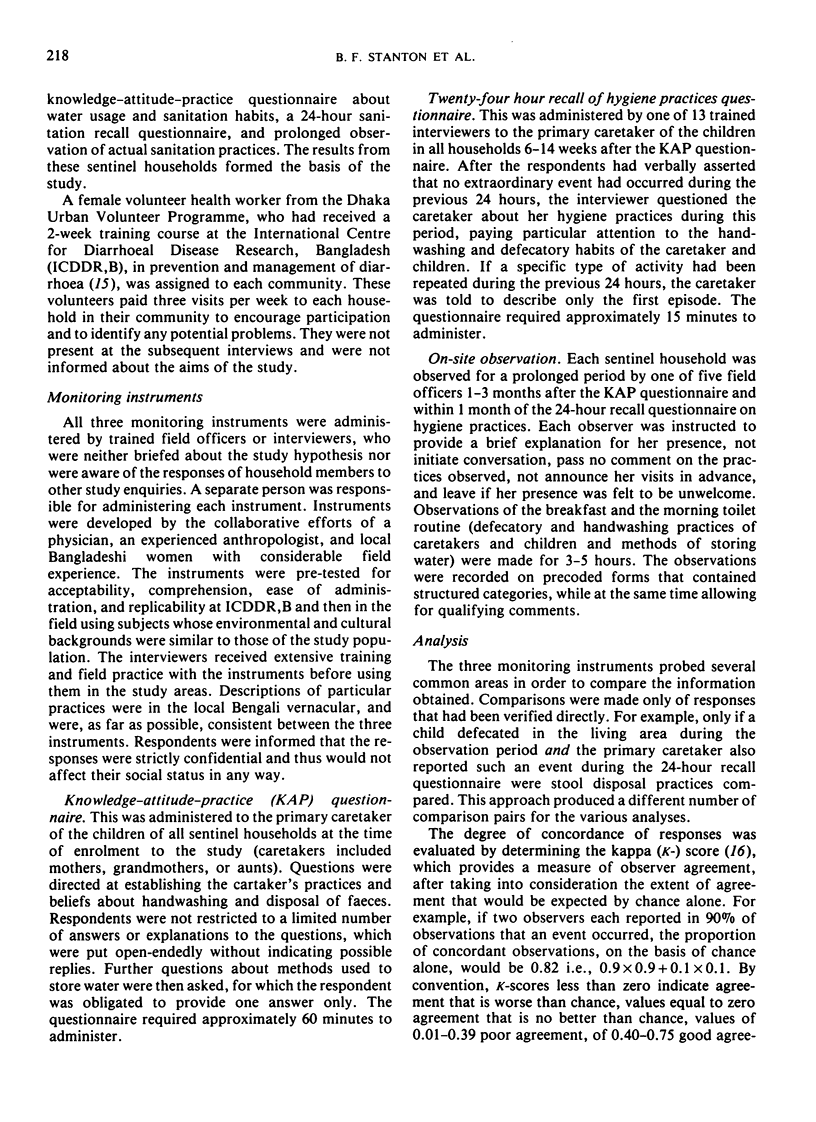
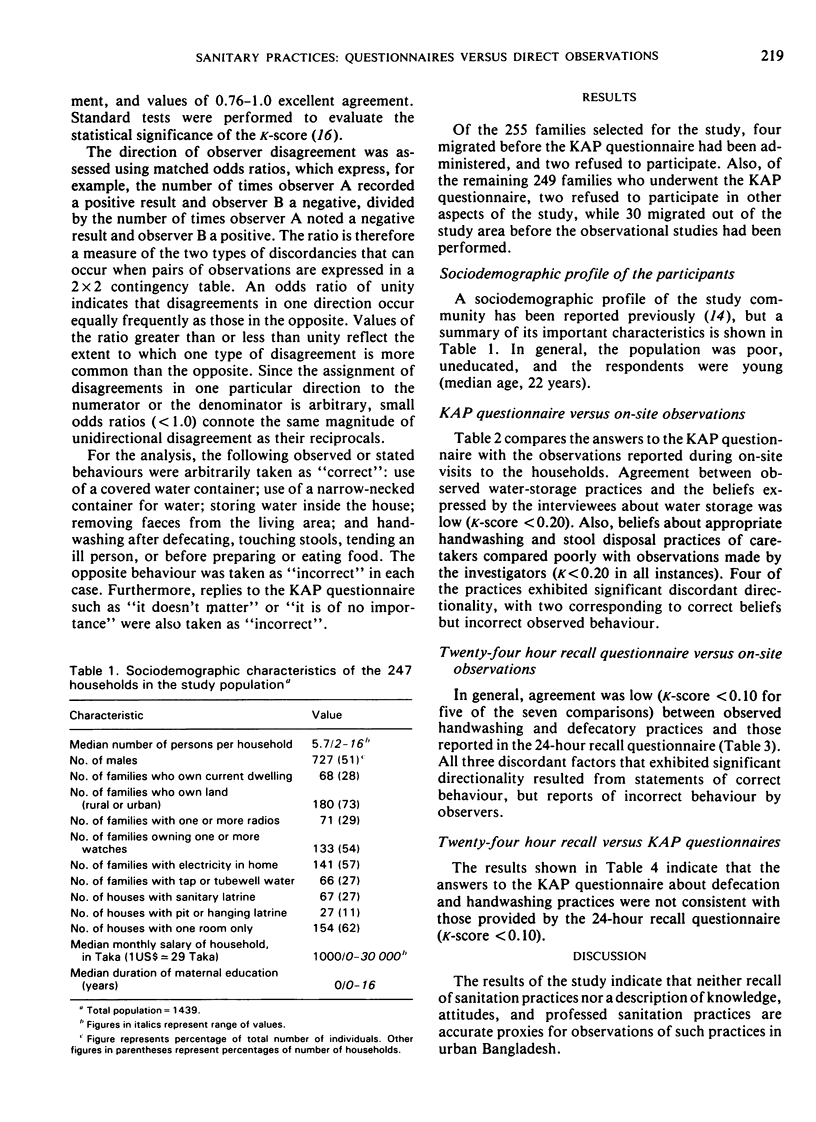
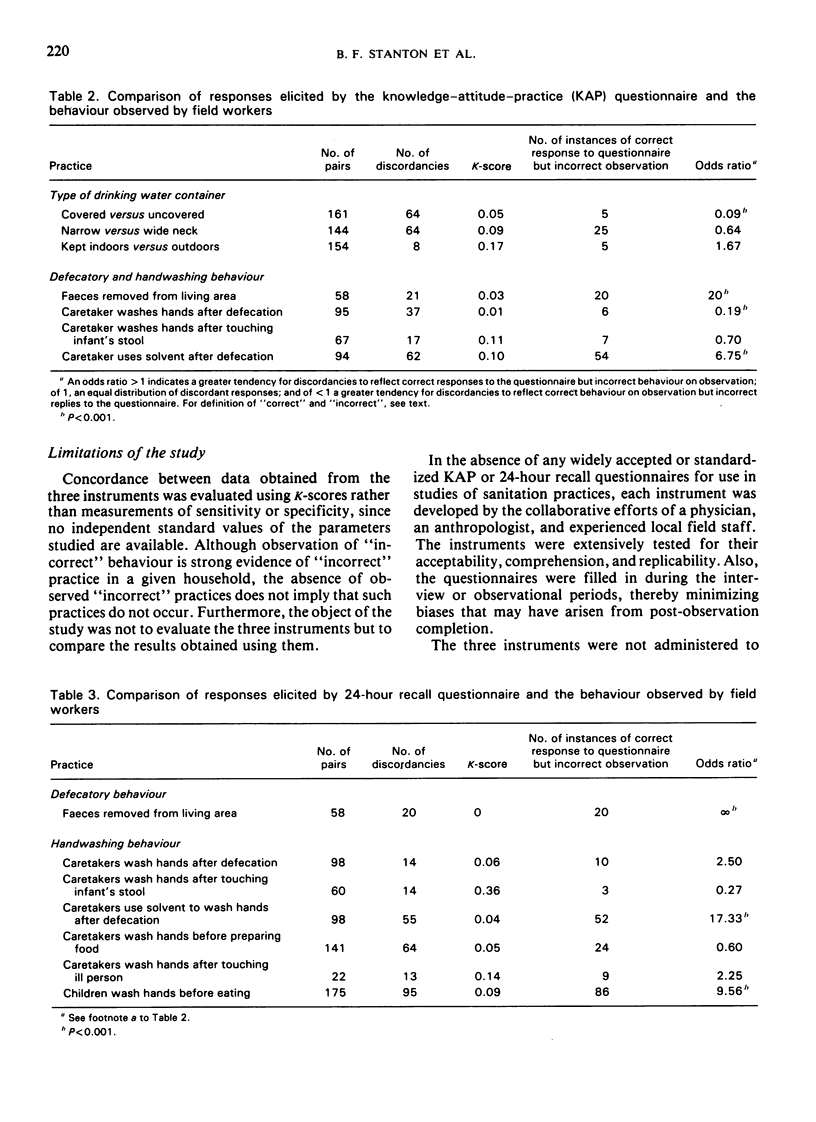
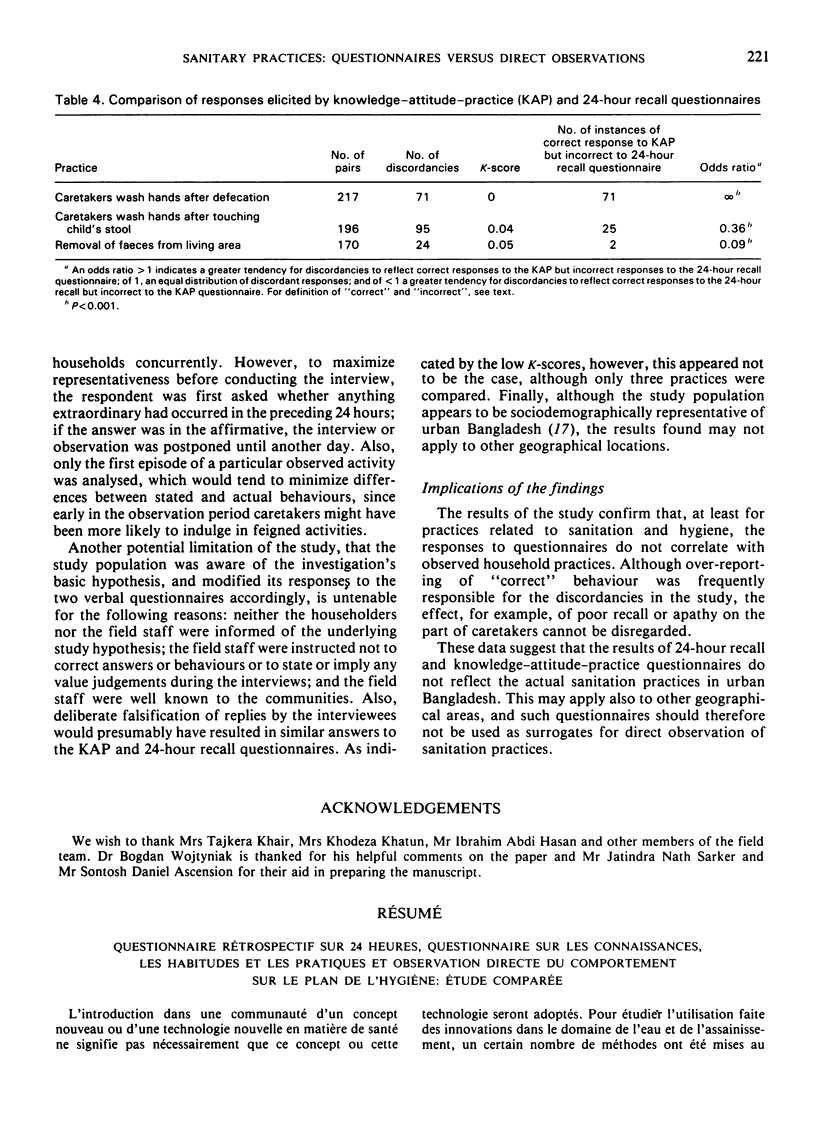
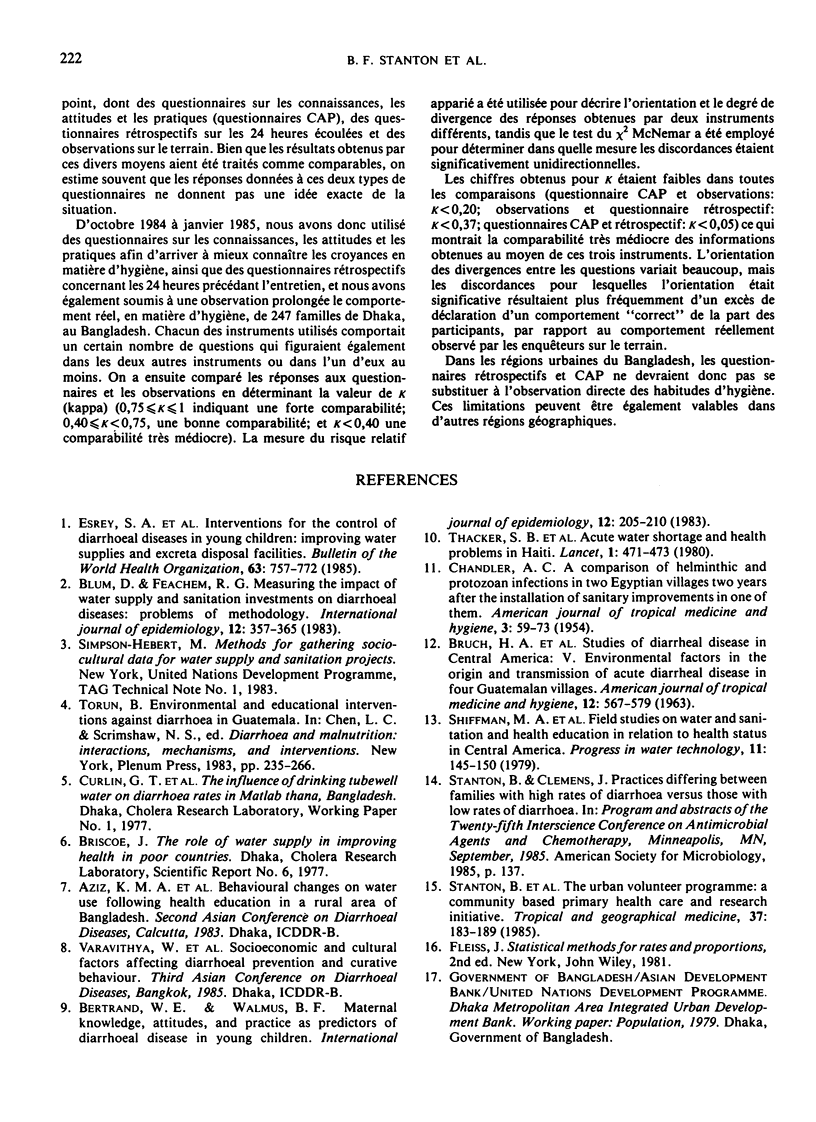
Selected References
These references are in PubMed. This may not be the complete list of references from this article.
- BRUCH H. A., ASCOLI W., SCRIMSHAW N. S., GORDON J. E. STUDIES OF DIARRHEAL DISEASE IN CENTRAL AMERICA. V. ENVIRONMENTAL FACTORS IN THE ORIGIN AND TRANSMISSION OF ACUTE DIARRHEAL DISEASE IN FOUR GUATEMALAN VILLAGES. Am J Trop Med Hyg. 1963 Jul;12:567–579. doi: 10.4269/ajtmh.1963.12.567. [DOI] [PubMed] [Google Scholar]
- Bertrand W. E., Walmus B. F. Maternal knowledge, attitudes and practice as predictors of diarrhoeal disease in young children. Int J Epidemiol. 1983 Jun;12(2):205–210. doi: 10.1093/ije/12.2.205. [DOI] [PubMed] [Google Scholar]
- Blum D., Feachem R. G. Measuring the impact of water supply and sanitation investments on diarrhoeal diseases: problems of methodology. Int J Epidemiol. 1983 Sep;12(3):357–365. doi: 10.1093/ije/12.3.357. [DOI] [PubMed] [Google Scholar]
- CHANDLER A. C. A comparison of helminthic and protozoan infections in two Egyptian villages two years after the installation of sanitary improvements in one of them. Am J Trop Med Hyg. 1954 Jan;3(1):59–73. doi: 10.4269/ajtmh.1954.3.59. [DOI] [PubMed] [Google Scholar]
- Esrey S. A., Feachem R. G., Hughes J. M. Interventions for the control of diarrhoeal diseases among young children: improving water supplies and excreta disposal facilities. Bull World Health Organ. 1985;63(4):757–772. [PMC free article] [PubMed] [Google Scholar]
- Stanton B., Clemens J., Koblinsky M., Khair T. The urban volunteer programme in Dhaka: a community based primary health care and research initiative. Trop Geogr Med. 1985 Jun;37(2):183–187. [PubMed] [Google Scholar]
- Thacker S. B., Music S. I., Pollard R. A., Berggren G., Boulos C., Nagy T., Brutus M., Pamphile M., Ferdinand R. O., Joseph V. R. Acute water shortage and health problems in Haiti. Lancet. 1980 Mar 1;1(8166):471–473. doi: 10.1016/s0140-6736(80)91009-0. [DOI] [PubMed] [Google Scholar]



